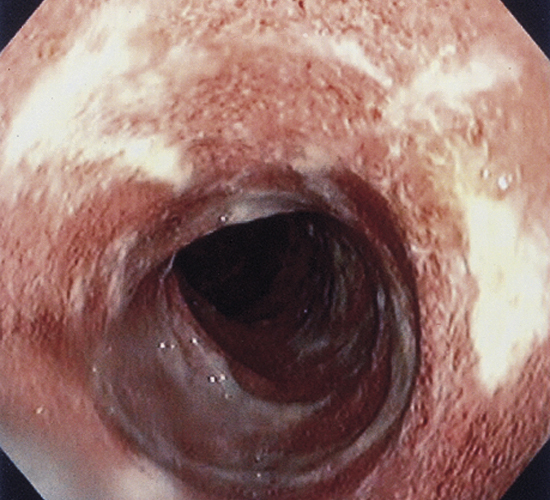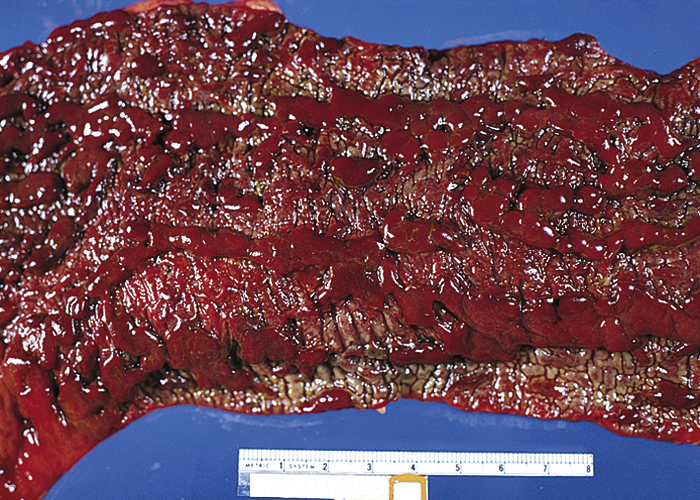ulcerative colitis, a chronic, episodic, inflammatory disease of the large intestine and rectum. It is characterized by profuse watery diarrhea containing varying amounts of blood, mucus, and pus. Some of the many systemic complications of ulcerative colitis include peripheral arthritis, ankylosing spondylitis, kidney and liver disease, and inflammation of the eyes, skin, and mouth. People with severe disease may develop toxic megacolon, a dangerous complication that may lead to perforation of the bowel, septicemia, and death. Also called inflammatory bowel disease. See also Crohn’s disease. ▪ OBSERVATIONS: The attacks of diarrhea are accompanied by tenesmus, severe abdominal pain, fever, chills, anemia, and weight loss. Children with the disease may suffer delayed physical growth. The debilitating symptoms often prevent people with ulcerative colitis from carrying on the normal activities of daily living. Diagnosis of the disease is based on clinical signs, the results of barium x-ray films of the colon, and colonoscopy with biopsy. It is often difficult to differentiate between ulcerative colitis and Crohn’s disease. ▪ INTERVENTIONS: Medical treatment with corticosteroids or other antiinflammatory agents may help control the symptoms in some people. Those with severe disease or life-threatening complications may require surgery. Total proctocolectomy with ileostomy is a permanent cure. Ulcerative colitis carries an increased risk of cancer of the colon, and periodic colonoscopy is performed to rule out this complication. ▪ PATIENT CARE CONSIDERATIONS: A person with ulcerative colitis is suffering from a chronic, life-threatening illness and requires frequent evidence of support and understanding during prolonged hospitalization.


